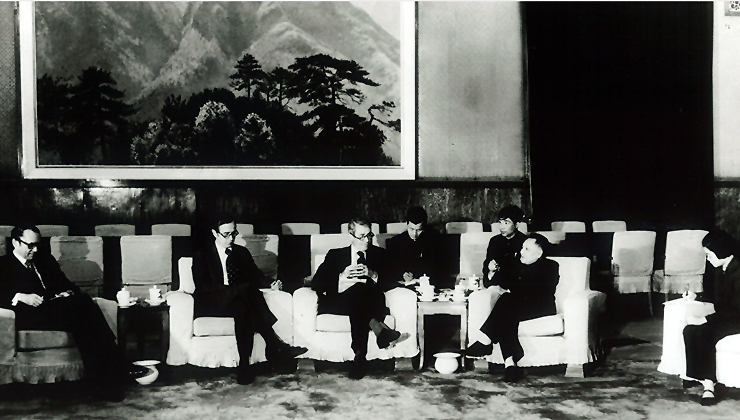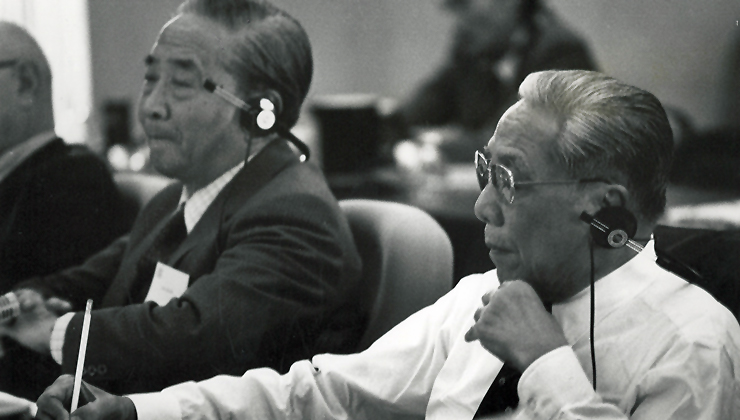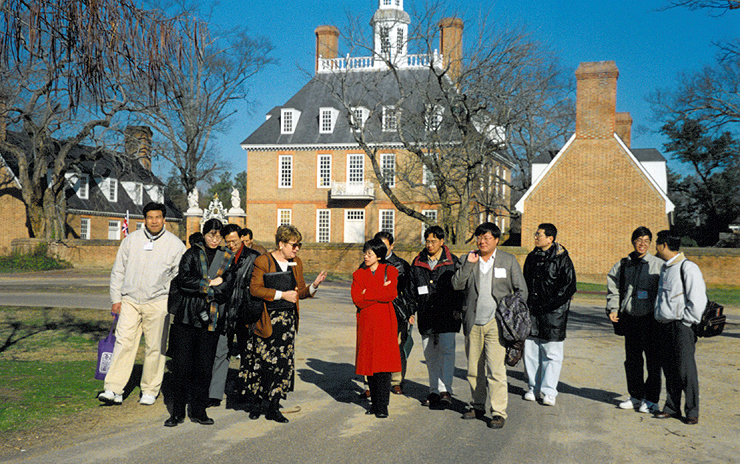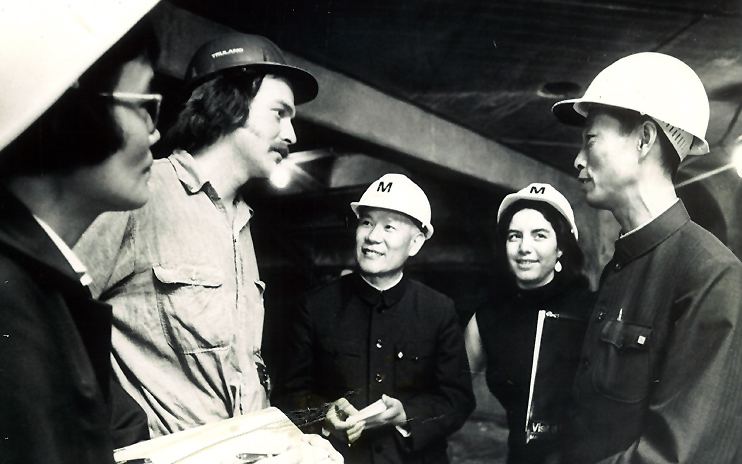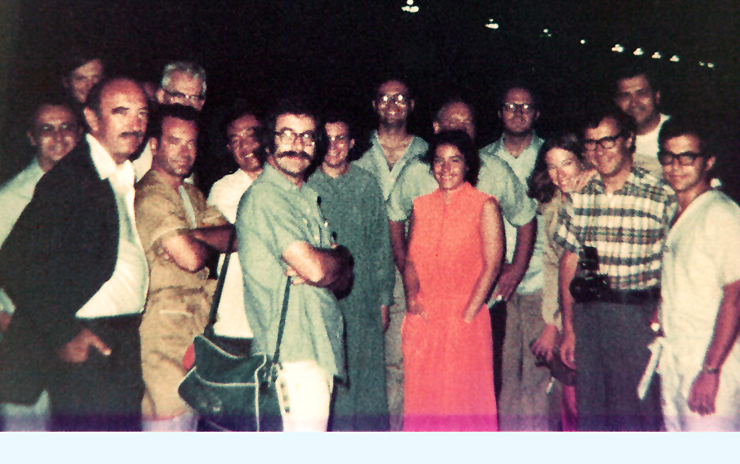Under the National Committee's auspices, a delegation of 17 young American political leaders — some serving in elected positions at the state or local level, others leaders of political organizations — visited the People's Republic of China in May 1977. Assembled with the cooperation of the American Council of Young Political Leaders, it was the first such visit of its kind.
George H.W. Bush and Deng Xiaoping met for the first time in October 1975, when an 18-member delegation of American leaders active in public education on world affairs visited China to discuss international issues.
Started in September 1984 as an off-the-record gathering of leading citizens of China and America, the U.S.-China Dialogue was the first formal instance of Track II diplomacy in the Sino-American relationship. It was held every 12-18 months, alternately in China and the United States, until 2002.
Launched when only a trickle of Chinese graduate students and scholars came to the United States for study, the Scholar Orientation Program was created to supplement academic training that Chinese scholars received at U.S. institutions by providing them with greater exposure to America's history, culture, and key institutions.
Expanding U.S.-China exchange programs beyond sports and culture, the National Committee and American Society of Newspaper Editors brought the first delegation of journalists from the People's Republic of China to the United States in 1973. Since then, several hundred journalists and media executives have participated in NCUSCR exchange programs and media-related conferences, workshops, and internships.
While a few staff members had joined their bosses on early trips to China made by the Senate and House leadership, it was the National Committee, in the summer of 1976, that sent the first group composed solely of staff members to China. This presaged the MEACA (Mutual Education and Cultural Act) program the Committee currently runs for both D.C and state/district-based staff members.
